ORGANIC COTTON
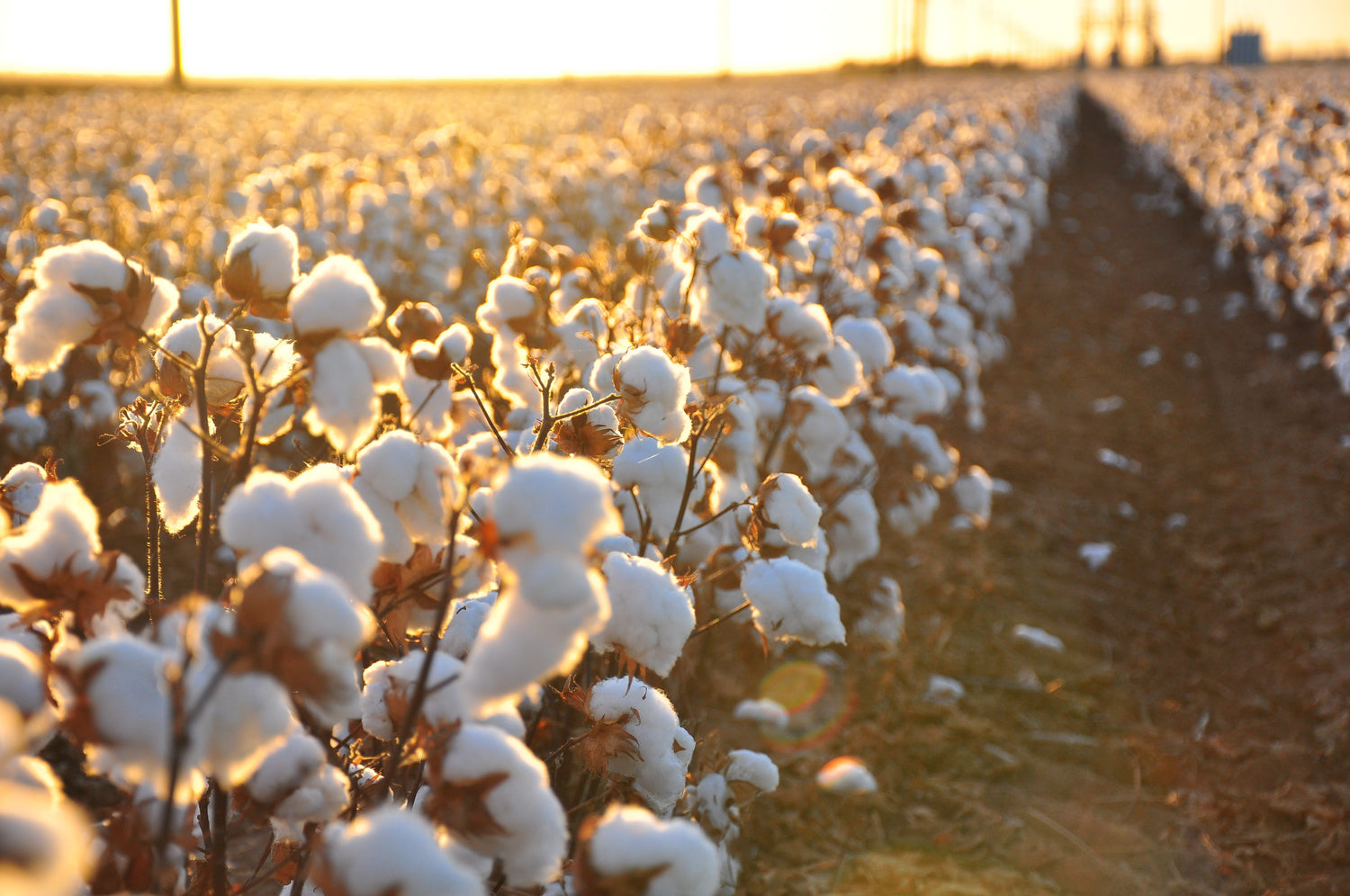
Growing organic cotton sustainably
Clothing is said to be the second largest polluter after oil on the planet, and a significant part of this can be attributed to the growing of regular cotton.
The clothing industry releases 1.26 billion tonnes of CO2 into the atmosphere every year, accounting for over 10% of global carbon emissions. A large portion of this can be attributed directly to the intensive farming of non-organic cotton, which is used in approximately 30% of the clothes we wear today.
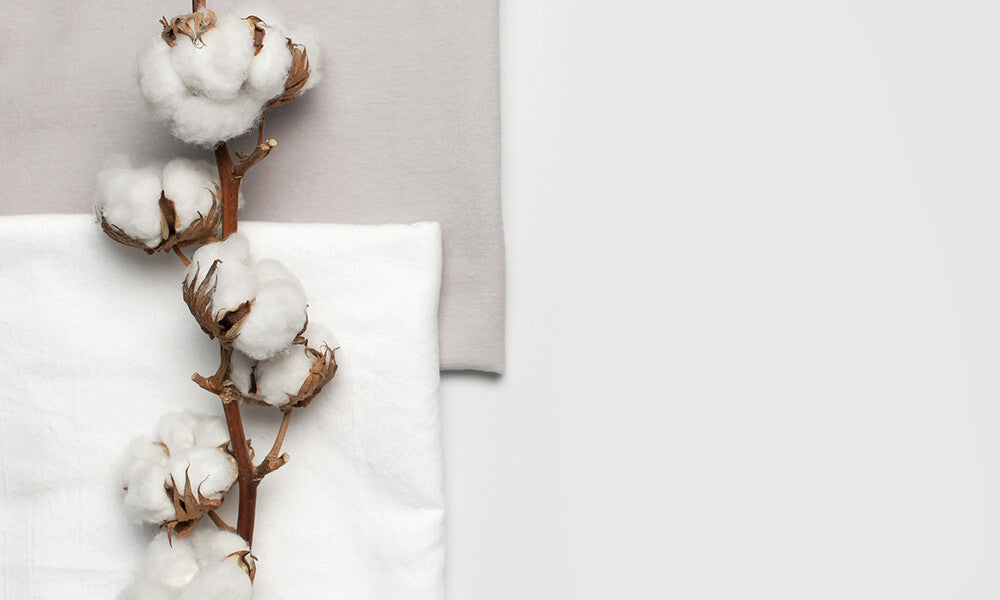
Sadly, cotton farmers are becoming more dependent on chemicals, fuelled by our demand for the new season’s styles.
Organic cotton provides a sustainable alternative, but less than 1% of all cotton grown is done so organically.
This is why we continue to develop our sustainably sourced organic cotton range.
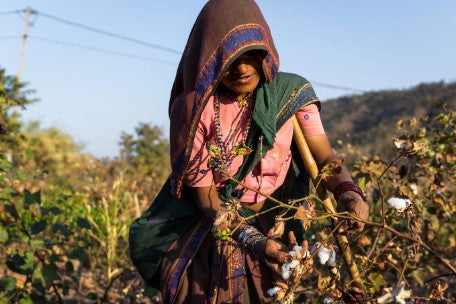
An organic alternative
On the other hand, organic cotton is grown without any chemicals. Organic cotton provides a fair wage to local growers, does not expose them or their families to dangerous substances, and ensure they have enough clean water to drink.
Organic cotton lowers the impact on local environments, encourages greater plant and animal diversity, requires less energy, releases less CO2, and does not reduce the quality of the soil.
High quality organic cotton also produces a much softer, more comfortable fabric for the consumer which is lacking a chemical footprint.

Sustainable 100% organic cotton
No chemicals are used to grow and produce organic cotton clothing, taking care of the local environment, the health of the farmers, and providing you with a soft, pure and untreated fabric.
IT TAKES 2,700 LITRES OF WATER TO MAKE A STANDARD COTTON T-SHIRT
... In contrast, organic cotton reduces water consumption by as much as 91%
- Soil Association
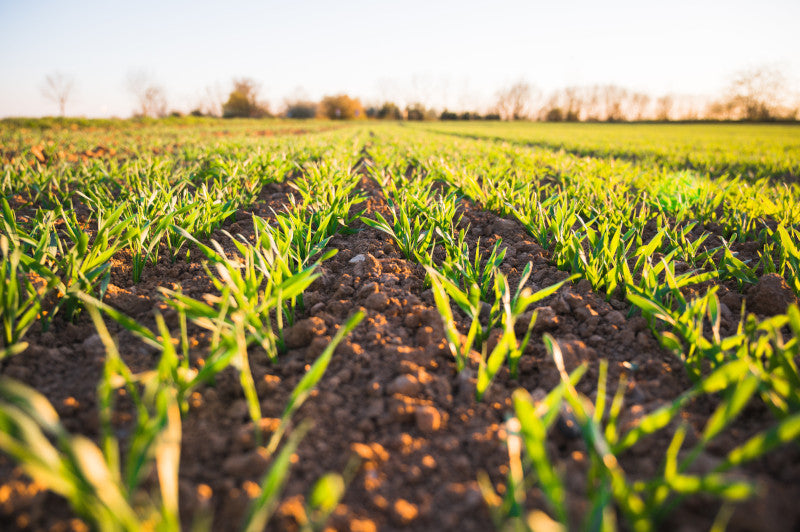
BUT REALLY, WHY?
There are many reasons for switching to organic cotton...
Kind to skin
Due to the absence of chemicals, smoothness and purity of the fabric, organic cotton is kinder to your skin, perfect for sensitive or allergy prone skin types
Boosts local ecology
Organic cotton can be rotated with other food crops, helping to boost ecological diversity and prevent soil degradation
Encourages green farming
Organic farming communities are increasingly using solar and biogas as an energy source, particularly where access to electricity is limited in some areas of Africa and Asia
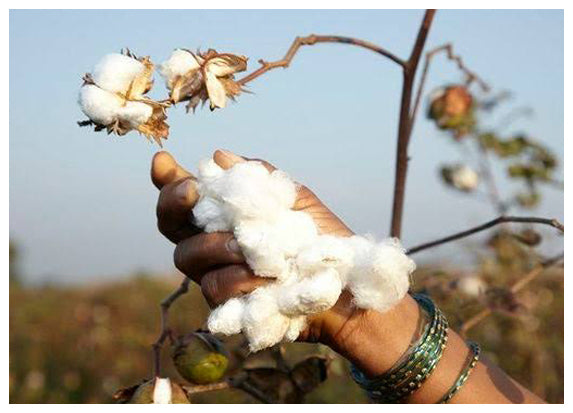
No chemicals
Organic cotton does not use toxic pesticides or synthetic fertilizers
No water pollution
Local waterways remain uncontaminated by surface runoff of chemicals
Less water intensive
Organic crops are less water intensive, using 91% less water
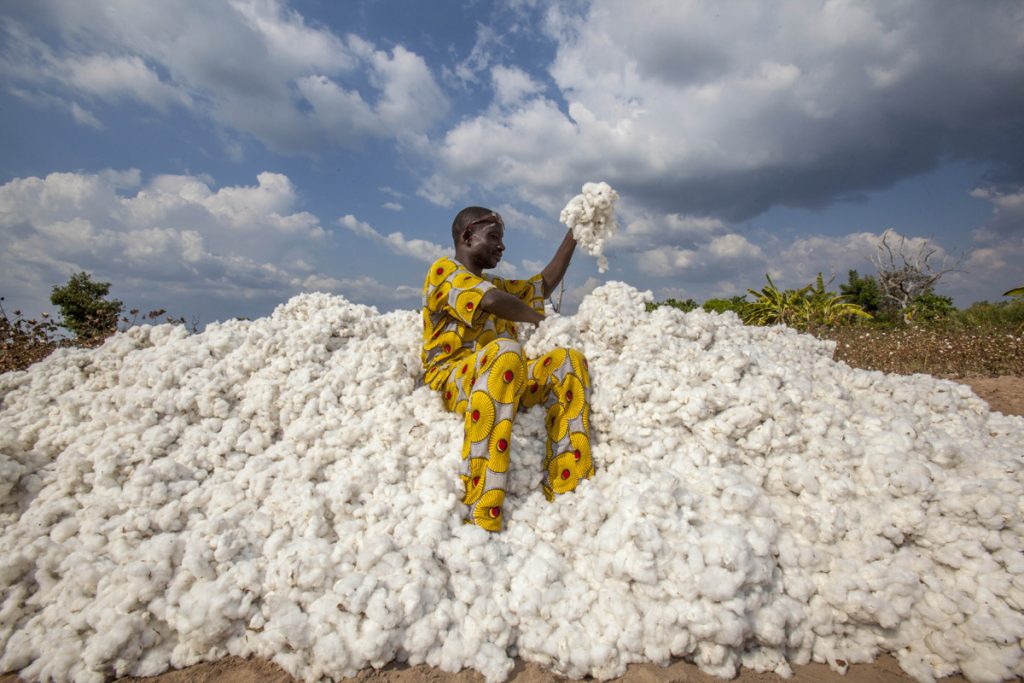
Less energy intensive
62% less energy is needed to produce organic cotton when compared to conventional cotton farming
CO2 sink
Organic farming helps lock CO2 in the soil, helping to mitigate climate change
Lower CO2 emissions
The growth of organic cotton almost halves the amount of CO2 released. To make 1 tonne of nitrogen fertiliser takes 1 tonne of oil, 100 tonnes of water and creates 7 tonnes of CO2

ETHICAL BENEFITS
Higher wages
Organic cotton farmers earn a higher, more stable income whilst spending less on chemicals, helping raise them out of poverty.
Better quality of life
Higher financial returns allows farmers to invest in their own well-being, increase investment in education, prevent child labour and provide a better quality of life for the whole family.
No chemical exposure
Organic cotton farmers and their families are not exposed to toxic chemicals. An estimated 1 to 5 million pesticide poisoning cases occur every year, resulting in around 20,000 deaths
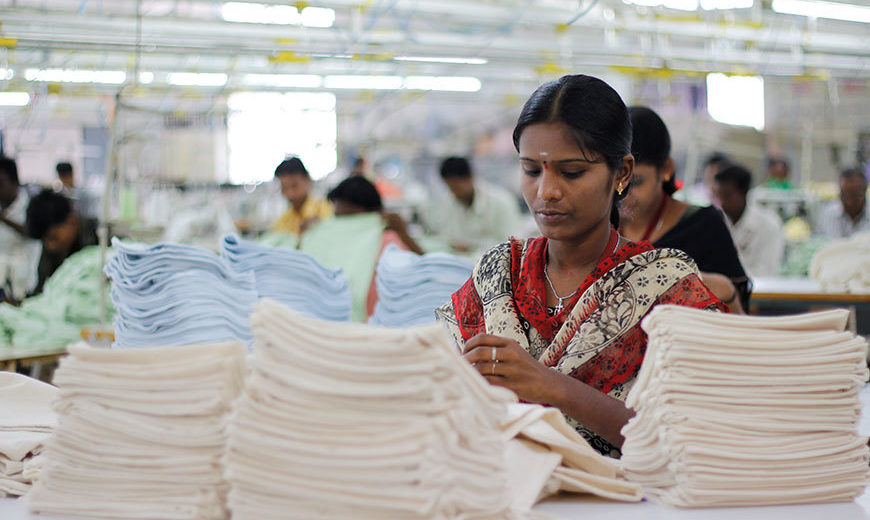
Promotes gender equality
Around 10% of organic farmers are women and have control of their own farms, made easier by the fact less heavy objects such as spray units need to be carried around
Encourages local economy
More people are encouraged to stay on the land due to better returns and quality of life, meaning fewer people are forced to move to cities
Encourages local democracy
Many organic cotton farming operations are cooperatives, respecting democracy and working collaboratively to create shared value
If you want to find out more amazing facts about the benefits of switching to organic cotton vs. conventional cotton, please see our article here.
